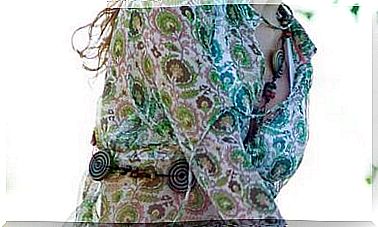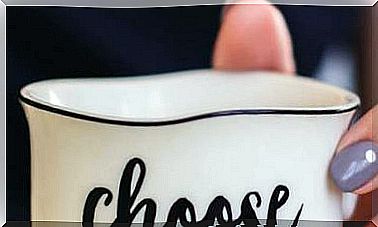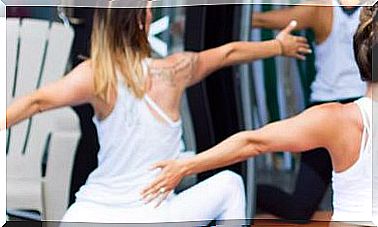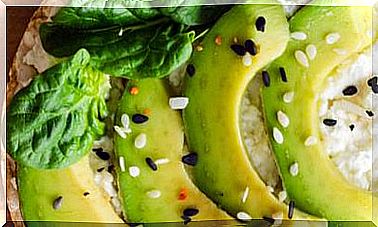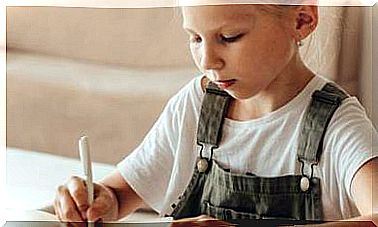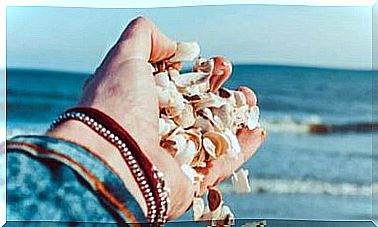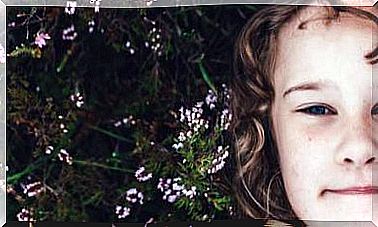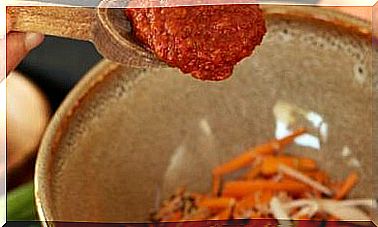Do You Feel Guilty? 3 Lists That Will Help You Free Yourself
Let’s not judge ourselves anymore. Let’s not punish ourselves anymore. Let’s take a break and stop blaming ourselves, because before we can change we must accept ourselves.

Don’t accuse yourself anymore! Our worst enemy is ourselves, in a continuous fight between what we are and what we think we should be. If the inner judge appears, accept rather than fight.
Words are not necessary to define guilt. Any of us knows the internal discomfort we feel when that feeling invades us.
Guilt is a “fighting state” between the person we are and the idea we have of how we should be and act
And although it can sometimes seem useful to avoid or rectify attitudes with which we have hurt someone, if we get stuck in it, it becomes an unpleasant feeling of fighting against ourselves.
Let’s accept ourselves as we are
But it is a fight lost beforehand that consumes our energy and leads to bitterness. Lovingly accepting that we are who we are is an essential requirement so that guilt does not invade us.
Accepting ourselves as is does not mean that we cannot change and improve or that we cannot grow as people, but surely we will not achieve it by way of guilt and reproach.
Where does the guilt come from?
The seeds of guilt arise from our childhood and grow throughout our lives.
1. The paternal judges
When our parents do not validate us as we are, we build the idea that it is wrong to be who we are and we pretend to be others, to get closer to that model that our parents say we should be.
A simple and well-known example is when the child is warned: “Men do not cry.” Unconsciously, that child draws his first conclusions: “It is wrong to cry, what I feel is wrong.” From there, every time you cry you will feel guilty.
The ideas that we acquire from parents are enhanced by what society indicates to us as good and due
It is not that it is wrong to have ideas of what we want to be or do, but of what we do when our life does not coincide with our ideas.
The situation we find ourselves in may or may not like us, but it is reality and we can only build on it.
What we are is always much more solid than any idea, however brilliant, of what we should be.
2. The internal judge
The effects of guilt are endless. It is as if we have an internal judge who whispers his accusations in our ear every time we deviate from the model.
It would be enough to become observers of ourselves to discover that this internal judge does not guide us on the right path, and also hurts us.
An alcoholic will not stop drinking out of guilt. He will only do so when he accepts himself as he is and even so it seems to him that he deserves to be loved, that he is worthy of receiving help and asking for it.
The external judge (reinforced by the internal)
Many times we recriminate someone, the other, who “makes us feel guilty.” But this is impossible. Unless we share that “accusation” ourselves.
My own case comes to mind. Before having my children, I trained as a therapist in the United States. Then I interrupted my training until my youngest son was four years old.
When I returned to travel to attend courses, my mother, “innocently”, asked me if it was really “necessary”, pointing out arguments such as “if the plane crashes your children would be left without a mother.”
Then the guilt began to do its work and no course seemed good enough and justified. Little by little I realized that it was my own ideas – not my mother’s – about what I should do that were interfering and did not let me appreciate what each course had to give me.
The work to dissolve the guilt was to observe the thoughts, the ideas, the phrases that invaded me when it overwhelmed me: “You should be at home”, “a good mother does not leave her children this way.”
Then I observed that they were just ideas, not realities. If I had forced myself to adjust to them, I would have lost things that were very important to me, and the situation would not have been ideal.
Accept to change
Although I must admit that it is difficult to get rid of these acquired thoughts, it is possible to disidentify and observe that it is only about that, ideas and not realities. Then they lose their strength and cannot get in the way.
The idea, the judgment, is put aside and we can get back on our way. And regardless of what we think, we always do what we can, which may be the maximum within our means.
But the drive that makes us who we are is stronger than any idea. We can accept it or feel guilty, but we will always be who we are.
Psychologist John Welwood says that the basis of human suffering is prosecution.
So when a problem invades us, let’s work to soften the judgment we make about ourselves.
If we accept that we are imperfect and that this is neither good nor bad, that it simply is what there is, we can build from this acceptance, of what there is. When we accept ourselves in all our imperfection and do not fight to change, love and compassion grow in us. And then the change occurs.
The 3 lists to live away from guilt
Do you want to acknowledge your feelings of guilt and free yourself from them? This simple exercise is very effective.
In a notebook you must make three lists in three parallel columns, each one headed by the words “I must”, “I want” and “I can”.
1. The “Must” list
Connect with everything you think you should change and write down the phrases with which you explain it to yourself. This is the column of “what should be”, that is, the arguments of the inner judge. Example: “I should eat only healthy and well-prepared meals.”
2. The “I want” list
In correspondence with each “Must”, see what you feel compelled to do and write it down next to it, at the same level, on the “I want” list. For example, corresponding to the previous sentence of how you should eat, it would be something like: “I want to eat buns and chocolate.”
3. The “I can” list
In this third column, write down what you can really do and what you do in each case. For example: “I can eat scones and chocolate once a week and in moderation.”
Accept reality
Although the “I can” column is not the one you like the most, it is the only real one. Let’s discard the “I must” column, and after knowing the “I want” column, let’s accept each one of the “I can” that does allow us to start a new story.
Disarm your judge
Judgments are ideas and not realities. Through these judgments, we must observe and know the mechanisms that generate us the feeling of guilt instead of pleasure, joy or security.
Change judgments by objective and kind questions, for example, “What a fool I have been!”, By “What led me to behave that way?” . So we will discover how it is activated.
